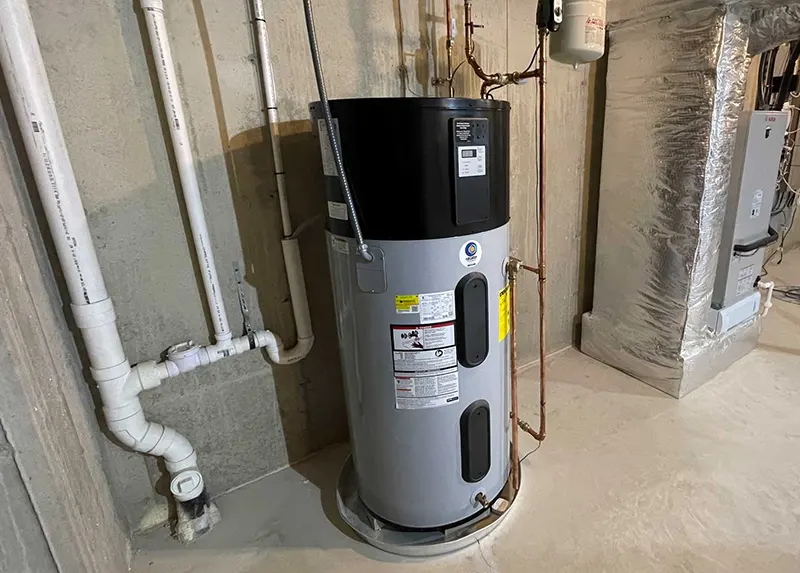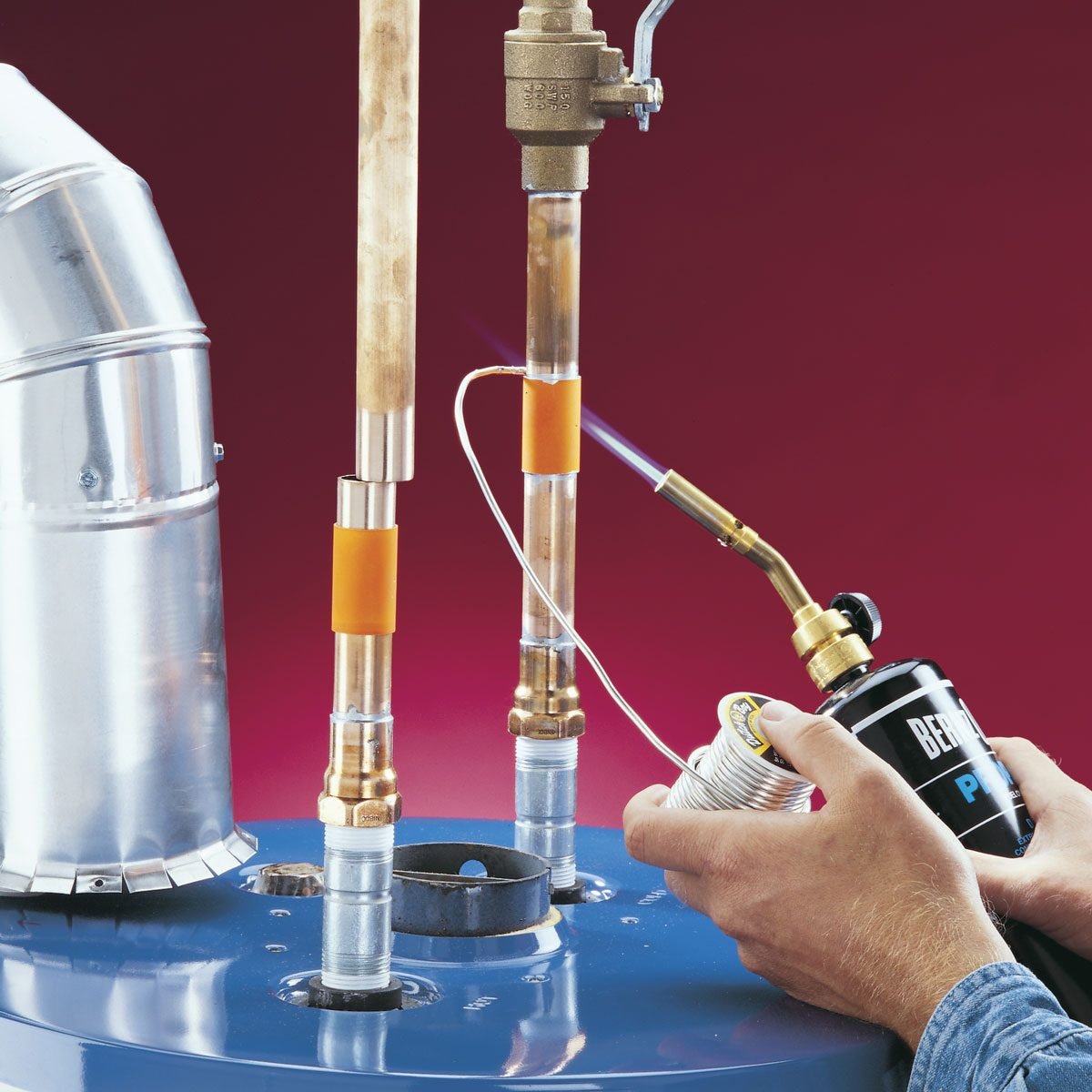Gas Leak Repair by Certified Technicians for Maximum Peace of Mind
Gas Leak Repair by Certified Technicians for Maximum Peace of Mind
Blog Article
Total Overview to Water HeaterSetup and Substitute
Comprehending the details of water heating unit installation and substitute is critical for home owners looking for to ensure performance and integrity in their hot water supply. From selecting the appropriate type and size to performing a seamless setup procedure, numerous aspects need to be taken into consideration to stay clear of usual risks.
Types of Hot Water Heater
When considering water heating system installation and replacement, it is necessary to comprehend the numerous kinds of hot water heater offered out there. One of the most usual kinds consist of storage tank hot water heater, tankless hot water heater, heatpump hot water heater, and solar water heating units.
Container water heating units are standard systems that store a specific volume of warm water, making them readily offered when required. In contrast, tankless water heating systems give hot water on demand, eliminating the demand for storage space.
Heatpump water heating units make use of electrical energy to transfer warmth from the air or ground to heat water, providing significant energy cost savings yet calling for even more area and certain installment problems. Solar water heating systems harness solar power to warmth water, supplying an environmentally friendly alternative with potential lasting cost savings, although they commonly require a back-up system for cloudy days.
Recognizing these options guarantees notified decisions regarding installation and substitute, providing to specific requirements and preferences.
Selecting the Right Dimension
Selecting the ideal size for a hot water heater is important to guarantee optimal performance and efficiency. A system that is as well tiny will certainly have a hard time to satisfy family demands, resulting in irregular warm water schedule and raised power intake. Alternatively, an oversized hot water heater can result in unnecessary power waste and higher energy expenses.
To figure out the ideal dimension, consider the family's top hot water usage. This can be computed based on the variety of owners and their common warm water requirements. For instance, a household of 4 might call for a hot water heater with a capacity of 50 to 80 gallons, depending on the use patterns, such as synchronised showers and laundry.
Furthermore, assess the healing rate, which gauges exactly how promptly a heater can restore hot water after it has been utilized. For tankless designs, concentrate on the circulation rate, measured in gallons per min (GPM), to ensure it meets the house's simultaneous need.

Installation Process Summary

Following, the old device has to be separated and removed, making sure to adhere to neighborhood codes and guidelines relating to disposal. Once the old device is out, the new hot water heater can be placed in position. This step involves attaching the water supply lines, guaranteeing that all fittings are leak-free and protected.
After developing water links, it's necessary to connect the power supply, whether electrical or gas, complying with the producer's guidelines carefully. As soon as all connections are made, the system must be filled up with water, and the power can be transformed back on. It's important to check for leaks and ensure the water heating unit is operating properly before finishing the setup process.
Usual Installation Mistakes

One more regular blunder is neglecting to adhere to regional codes and guidelines. Falling short to adhere to these requirements can not only lead to security risks yet may also result in pricey fines or the need for costly reinstallation.
Falling short to secure connections or utilizing the incorrect type of fittings can lead to leaks and water damage. By preventing these common installation errors, home owners can ensure their water heater runs securely and successfully, making best use of performance and longevity.
Maintenance Tips for Longevity
Appropriate upkeep of a hot water heater is essential for its long life and optimum performance. Regular assessments and servicing can protect against expensive repair work and prolong the device's life-span. Begin by inspecting the temperature level setup; it needs to generally be set in between 120 ° F and 140 ° F for ideal energy efficiency and safety.
Every 6 months, flush the storage tank to get rid of sediment build-up, which can harm home heating effectiveness and create corrosion. To do this, switch off the heater, attach a pipe to the drain shutoff, and let the water run until it is clear.
Anode rods should be examined yearly and changed when they are worn away. These poles help prevent storage tank rust by bring in destructive elements in the water.
In addition, examine the stress alleviation shutoff on a regular basis to ensure it is operating properly. This valve is important for avoiding too much stress build-up within the container.
Last but not least, think about scheduling a professional upkeep check every couple of years for extensive assessments and maintenance. By sticking to these maintenance suggestions, house owners can significantly boost the performance, safety and security, and life-span of their hot water heater, ensuring reliable hot water for many years ahead.
Verdict
To conclude, correct setup and upkeep of hot water heater are essential for making sure performance and longevity (gas leak repair). Choosing the proper type and size, sticking to setup standards, and avoiding typical blunders dramatically add to optimum efficiency. Regular upkeep checks and professional maintenance aid receive functionality and protect against pricey repairs. By recognizing these necessary aspects, house owners can achieve a reputable warm water supply while minimizing possible problems connected to water heater procedure.
Understanding the intricacies of Read Full Report water heater installment and substitute is important for house owners seeking to ensure efficiency and integrity in their hot water supply.Tank water heaters are typical systems that save a certain volume of hot water, making them readily available when required. In comparison, tankless water heating systems offer warm water on demand, removing the need for storage space. Choosing a water heater that is either as well little or too large can lead to ineffectiveness, resulting in inadequate hot water supply or too much energy intake.
By understanding these vital facets, homeowners visit site can achieve a dependable warm water supply while reducing possible concerns associated to water heater operation. drain cleaning.
Report this page